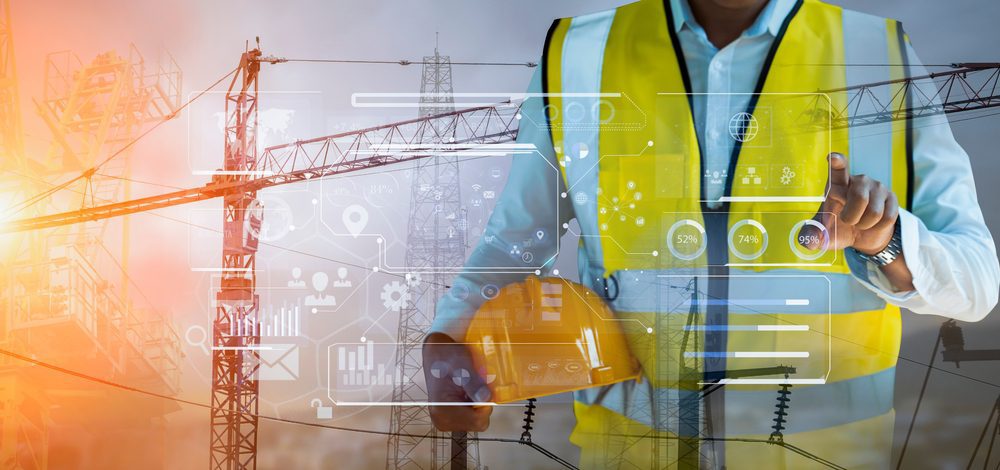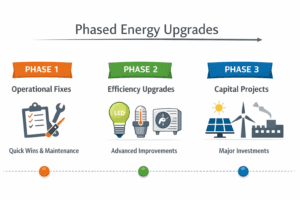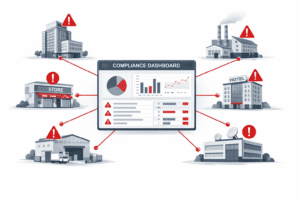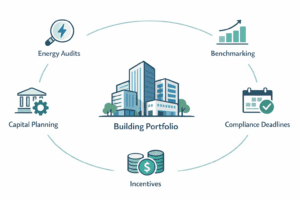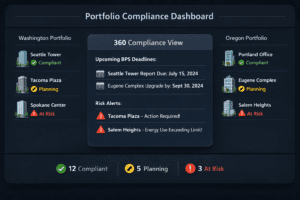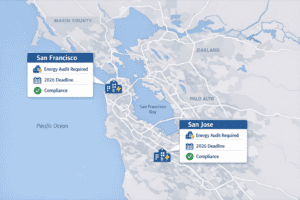Introduction
The construction industry is undergoing a significant transformation as the world recognizes the need for sustainable practices. Contractors are at the forefront of this change as they have the power to drive sustainable construction throughout the entire project lifecycle. As technology continues to advance, the integration of Artificial Intelligence (AI) has emerged as a game-changer for contractors. In this blog, we will explore the intersection of AI and sustainable construction, delving into the benefits, challenges, and implications for the industry.
Understanding AI in Construction
Artificial Intelligence (AI) refers to systems that can perform tasks that typically require human intelligence, such as decision-making, problem-solving, and perception. In the construction sector, AI finds numerous applications that can revolutionize the way contractors approach their work.
Benefits of integrating AI into construction processes
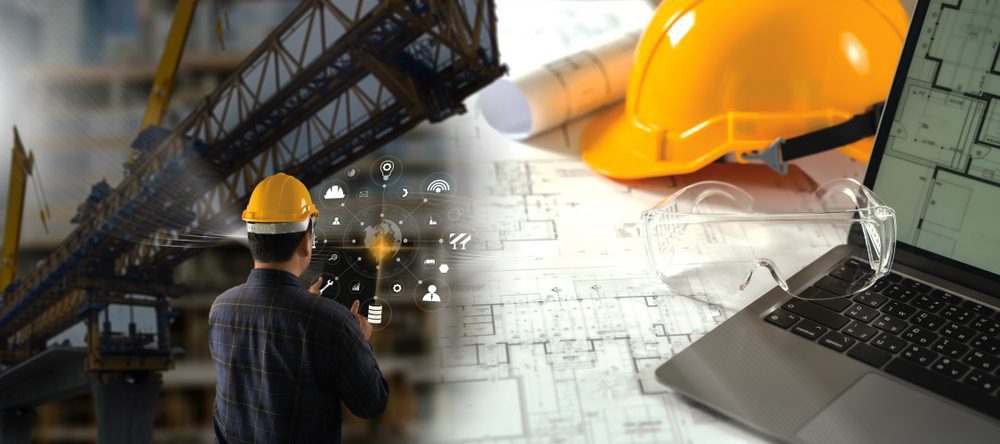
The integration of AI brings several benefits to the construction industry, particularly when it comes to sustainable construction practices. Let’s explore some of these advantages:
- Improved project planning and scheduling: AI algorithms can analyze vast amounts of data, historical project information, and external factors to generate accurate forecasts and optimize schedules. This leads to enhanced project planning and resource allocation, resulting in more efficient construction processes and reduced environmental impact.
- Enhanced safety and risk management: Safety is a top priority in the construction industry, and AI-powered systems can play a crucial role in mitigating risks. By analyzing real-time data from construction sites, AI can identify potential hazards and even predict accidents before they occur. This proactive approach to safety management can save lives and create safer work environments.
- Increased productivity and efficiency: AI can automate repetitive and time-consuming tasks, freeing up human resources to focus on higher-value activities. For example, robotics and automation technologies enable efficient material handling, reducing human error and optimizing construction processes. This not only improves productivity but also reduces energy consumption and waste generation.
- Cost reduction and waste minimization: By leveraging AI, contractors can optimize resource usage and minimize waste generation. AI algorithms can analyze energy consumption patterns to identify areas for improvement, optimize material usage, and even suggest alternative eco-friendly materials. This not only reduces costs but also contributes to sustainable construction practices by minimizing the environmental impact.
AI-driven Solutions for Sustainable Construction
The integration of AI technology presents a wealth of opportunities for contractors to optimize resource usage and minimize their environmental footprint. Let’s explore some specific ways AI can drive sustainability in construction:
Optimized resource management
Efficient resource management is crucial for sustainable construction practices, and AI can revolutionize this aspect of the industry:
- Efficient energy consumption and monitoring: AI-powered systems can analyze energy usage patterns in real-time, identify areas of high consumption or wastage, and suggest energy-efficient alternatives. By integrating smart sensors and algorithms, contractors can implement automated control systems that optimize energy usage throughout the construction process. This not only reduces energy costs but also lowers the carbon footprint of construction projects.
- Intelligent waste management and recycling: Waste generation is a significant concern in the construction industry. AI can play a vital role in optimizing waste management by analyzing data on waste production, identifying opportunities for recycling and repurposing, and suggesting methods to minimize waste generation. Machine learning algorithms can improve construction waste segregation processes, making recycling more efficient and reducing the reliance on landfills.
Minimizing construction’s environmental footprint
AI technology can play a crucial role in minimizing the environmental impact of construction activities:
- AI-guided site selection and design: AI algorithms can analyze various factors, such as environmental impact, energy efficiency, and community considerations, to guide contractors in selecting suitable sites and designing sustainable structures. By considering these factors from the beginning, construction projects can align with environmental goals and contribute to a greener future.
- Advanced simulations and modeling for energy-efficient designs: AI-powered simulations enable contractors to evaluate the energy performance of different design alternatives. By simulating various scenarios, contractors can identify the most energy-efficient designs, resulting in greener buildings and reduced energy consumption throughout their operational life.
- Real-time monitoring for sustainable construction practices: AI can monitor construction sites in real-time, detecting deviations from sustainable practices and suggesting corrective measures. For instance, AI algorithms can monitor air and water quality, noise levels, and construction waste, ensuring compliance with environmental regulations and best practices. This real-time monitoring helps contractors maintain a high level of environmental responsibility and make data-driven decisions to minimize their projects’ environmental impact.
Challenges and Considerations
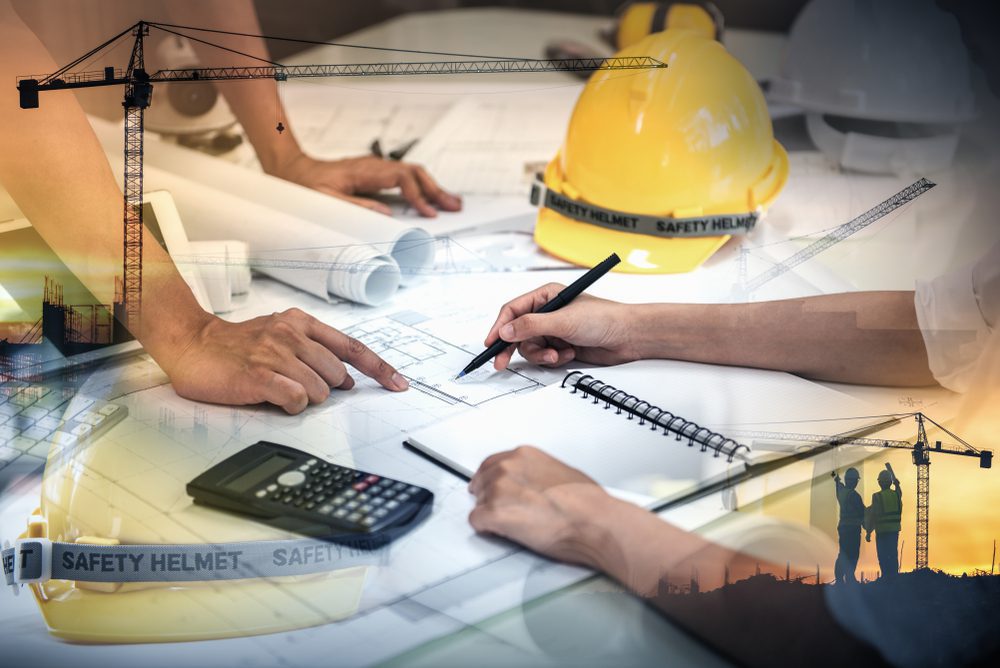
While AI holds great promise for the construction industry, there are several challenges and considerations that need to be addressed:
- Data accuracy and reliability: AI heavily relies on accurate and reliable data for optimal performance. Contractors need to ensure the quality and accuracy of data used by AI systems to avoid erroneous outcomes and flawed decision-making. This requires proper data collection, cleansing, and validation processes.
- Workforce adaptation and training: The integration of AI in construction processes may require upskilling and reskilling the existing workforce. Contractors need to invest in training programs to ensure seamless collaboration between humans and AI technologies. Upskilling the workforce will also enable employees to leverage AI tools effectively and make the most of their capabilities.
- Ethical considerations and privacy concerns: AI applications in construction may raise ethical concerns related to privacy, security, and data usage. Contractors must adopt responsible data collection and usage practices, ensuring transparency and compliance with privacy regulations. It is essential to prioritize the protection of personal data and ensure that AI systems are designed and implemented in an ethical and responsible manner.
It is crucial to leverage AI responsibly and strike a balance between automation and human expertise. Contractors should view AI as a tool to enhance their capabilities and not as a replacement for human skills and knowledge.
The Future of AI in Construction
As AI technology continues to evolve, contractors need to stay informed about emerging trends and advancements to remain competitive. Some of the potential future implications of AI in construction include:
- Improved collaboration and communication: AI-powered tools can enhance collaboration among project stakeholders, facilitating better communication and coordination. For example, AI chatbots and project management systems can streamline communication channels, ensuring everyone has access to the right information at the right time. This can lead to more efficient project execution, reduced delays, and enhanced overall project outcomes.
- Job role implications and the evolving workforce: The introduction of AI may reshape job roles within the construction industry. Some tasks that were traditionally performed by humans may be automated. However, new job opportunities may arise in managing and maintaining AI systems, driving the need for continuous learning and adaptability. Contractors must prioritize the upskilling and reskilling of their workforce to ensure they can handle the evolving demands of the industry and remain competitive.
Continuous adaptation and learning are essential for contractors to thrive in the evolving industry landscape.
Conclusion
In conclusion, the integration of AI into construction processes offers significant benefits for contractors in terms of sustainable practices, improved efficiency, and cost reduction. AI can optimize resource management, minimize environmental impact, enhance safety, increase productivity, and reduce costs. By leveraging AI-driven solutions, contractors can drive positive change and contribute to a greener and more sustainable construction industry.
However, there are challenges and considerations to address. Ensuring data accuracy and reliability is crucial for optimal AI performance. Contractors must invest in proper data collection, cleansing, and validation processes. Workforce adaptation and training are also necessary to collaborate effectively with AI technologies. Upskilling and reskilling programs will enable employees to leverage AI tools and capabilities.
Ethical considerations and privacy concerns should be prioritized. Responsible data collection and usage practices, transparency, and compliance with privacy regulations are essential. Contractors must protect personal data and design AI systems in an ethical and responsible manner.
Looking towards the future, AI has immense potential for the construction industry. Improved collaboration and communication among stakeholders can be facilitated through AI-powered tools like chatbots and project management systems. The evolving workforce will require continuous learning and adaptation to handle the changing demands of the industry.
So, whether you’re an architect, builder, or developer, embracing AI is a vital step toward creating a better, greener world for us all. As we move forward, the future of AI in construction is brighter than ever. It’s a world where buildings not only shelter but also heal, inspire, and preserve the planet for generations to come.
Unlock the full potential of your contracting business with VertPro.com, your key to enhanced lead generation. At VertPro.com, we specialize in empowering Contractors like you with a range of cutting-edge solutions and exclusive access to our state-of-the-art Construction Marketplace. As industry trailblazers, we’re dedicated to providing innovative SaaS technology-based tools that help you stay ahead of the curve.
With our expertise in Commercial Energy Audits, Energy Benchmarking and Energy Audits/RCx Plus, we ensure your clients’ compliance with more than 60 Energy Benchmarking and Energy Efficiency Laws.
Now is the perfect moment to seize this opportunity and supercharge your lead generation efforts. Sign up for VertPro.com’s comprehensive solutions today and let us be the catalyst for the transformation your contracting business deserves. Your journey to a more energy-efficient future starts right here!


